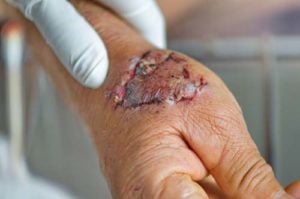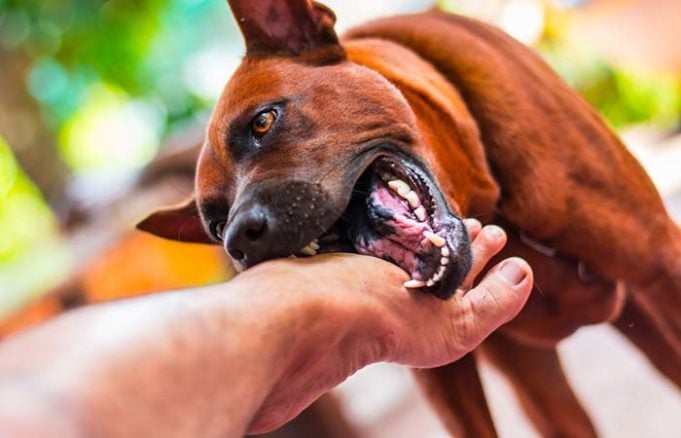Apparently, your stressful demeanor around dogs can increase the risks of dog bites, experts say.
Can dogs smell fear in humans? You might have been told to keep yourself calm around an unfamiliar and vicious-looking dog to fend off a potential bite because they can sense your nervousness. But is there really a basis behind this belief?
“Our findings suggest that the less anxious, irritable and depressed a person is, the less likely they are to have been bitten.”
Scientists from the University of Liverpool conducted a study to determine if dogs can really sense fear and be triggered by a person's anxious reaction enough to launch an attack. In a survey conducted among 1,200 homes, 1 in 4 of the respondents said that dogs have bitten them before and it led to a hospital confinement.
A Common Pattern
More men experienced dog bites than women, but the researchers found a noticeable pattern from these victims of dog bites. Apparently, most of them were actually nervous or anxious around the dog. The findings were published in the Journal of Epidemiology and Community Health.
The experts learned that more than half of the respondents who experienced dog bites were first encounters. About 44 percent, on the other hand, were bite incidents and encounters with dogs from the human's childhood years.
Of the victims, the experts also conducted a simple personality test to determine their emotional stability. The more neurotic the participants registered lower on the researchers’ scale.
The experts explained that the dogs that attacked the humans might have regarded nervousness and anxiousness as a threatening behavior. Because these emotions are highly charged, the dogs reacted with the same intensity through aggression.
The findings suggested that effective dog bite prevention tactics must also consider the demeanor and behavior of humans as risk factors. The experts, however, said that further studies might be needed since the breed, age and gender of the dogs were not considered in the survey.
RELATED: Dogs Are Second Most Dangerous Nonvenomous Animals in the US
What to Do Following a Dog Bite
 As dog bites can cause an infection, it's important to go to the doctor immediately for a better diagnosis, if you've been bitten. However, as a first aid treatment, you must wash and clean the wound with soap and water and then cover this with a bandage to prevent further infection.
As dog bites can cause an infection, it's important to go to the doctor immediately for a better diagnosis, if you've been bitten. However, as a first aid treatment, you must wash and clean the wound with soap and water and then cover this with a bandage to prevent further infection.
If the wound is too big and the bleeding won't stop, carefully place a towel and put some pressure on the bite mark. If possible, keep the affected area elevated until you get to the hospital. The doctor might need to perform sutures to close your wound, as well as give you anti-rabies and tetanus shots. You will also be given antibiotic treatments, which you must take for at least seven to 14 days.
How to Handle a Dog that Bites
There are many factors that may lead a dog to bite, but one of the biggest reasons is dog aggression. Since dogs can be territorial, they tend to exhibit possessiveness. In domesticated pets, this behavior can be corrected. However, if the aggressive dog is not familiar to you, it's better to steer clear of the animal.
A dog might also bite because it is hurting, injured, uncomfortable, or in pain. If you don’t know how to handle dogs in this situation, it’s best to call animal control (if it’s a stray) or your veterinarian for a house visit (if it’s your pet).
You can usually tell if a dog is about to attack just by looking at it. Aside from the obvious snarl and showing of the teeth, a dog will stiffen his body, widen his eyes and pin back his ears. The fur on his back will also be raised.
Always report the incident to animal control if the dog that bit you is unknown and a stray.
READ NEXT: 20 Dog Breeds With the Strongest Bite Force













